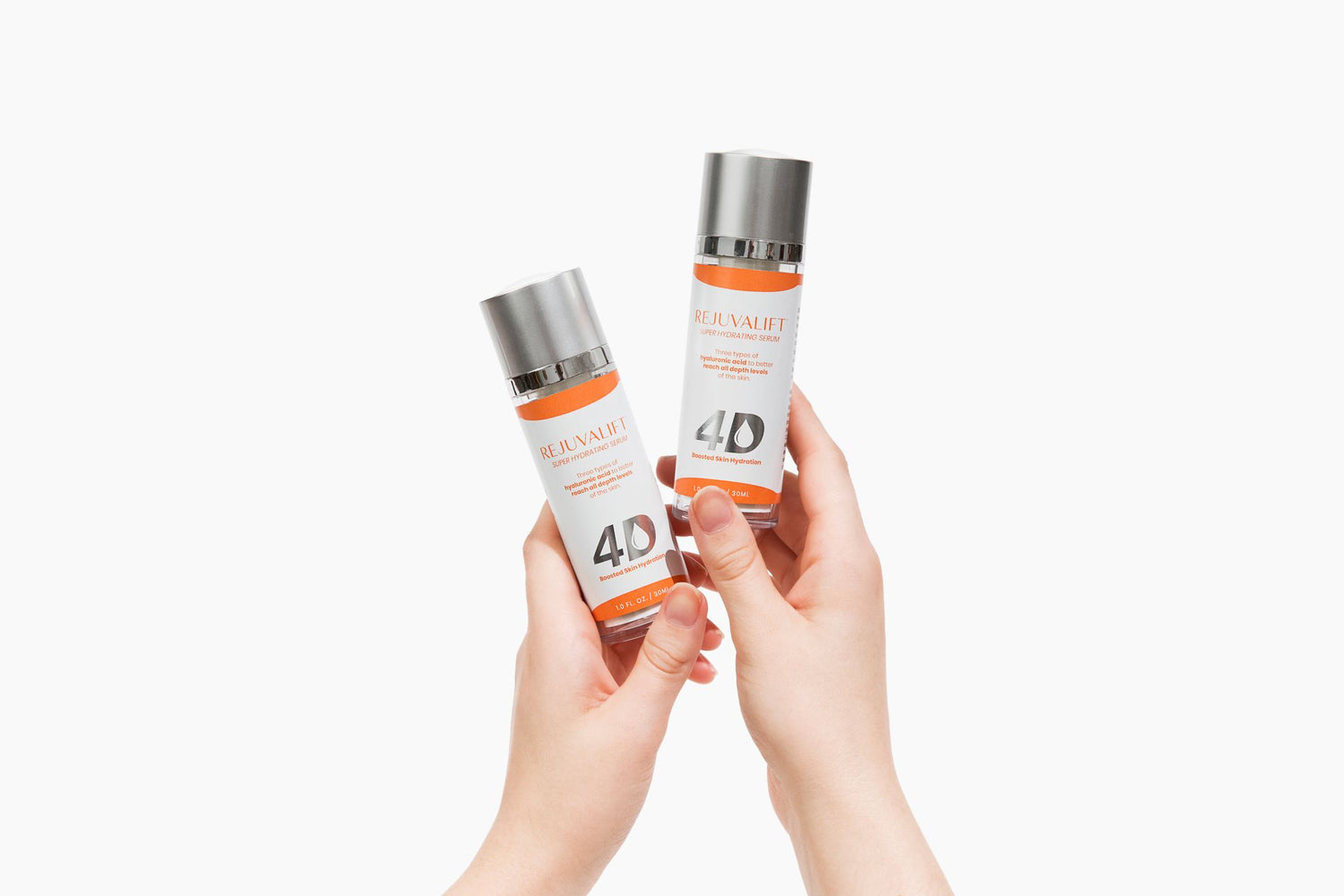Red algae is a powerful skincare ingredient known for its rich antioxidant content, deep hydration properties, and ability to support collagen production. Used in a variety of skincare products, red algae helps protect the skin from environmental damage, improve elasticity, and enhance overall skin health.
Its popularity in the beauty industry has grown significantly due to its natural ability to retain moisture, combat signs of aging, and reinforce the skin barrier. Many brands now incorporate red algae into their formulations, from high-end luxury creams to affordable drugstore options.
This article provides a detailed look at skincare products that contain red algae, their benefits, and how to choose the right one for your skin type.
Related: A Beginner's Guide to Building a Skincare Routine
What is Red Algae and Why is it Used in Skincare?
Red algae is a marine-derived ingredient rich in bioactive compounds, commonly found in ocean waters. It has been widely studied for its skin-enhancing properties, making it a valuable addition to modern skincare formulations.
Key Properties of Red Algae
-
High in Antioxidants → Shields skin from free radical damage, reducing premature aging.
-
Contains Polysaccharides → Enhances skin hydration and moisture retention.
-
Natural Source of Peptides and Amino Acids → Supports collagen production for firmer, youthful skin.
-
Rich in Essential Minerals (Magnesium, Calcium, Bromide) → Helps repair and nourish the skin.
Why Skincare Brands Use Red Algae?
-
Anti-Aging and Firming Benefits → Helps minimize fine lines and wrinkles by protecting collagen integrity.
-
Skin Barrier Protection → Strengthens the skin’s natural defense against pollutants and UV damage.
-
Hydrating and Soothing Properties → Ideal for dry, sensitive, or irritated skin, providing long-lasting moisture.
How Red Algae is Used in Skincare Products?
Red algae is a versatile ingredient found in many skincare formulations, including moisturizers, serums, masks, cleansers, and sunscreens. Its ability to retain moisture, protect against oxidative stress, and support collagen production makes it a key component in products designed to hydrate, soothe, and combat signs of aging.
Role of Red Algae in Different Skincare Formulations
-
Moisturizers → Red algae enhances hydration by binding water to the skin, making it an excellent ingredient in face creams for dry or aging skin. It also helps lock in moisture for long-lasting hydration.
-
Serums → Concentrated formulas containing red algae work to boost collagen production and improve elasticity, reducing the appearance of fine lines. Many anti-aging serums incorporate red algae with other bioactives for maximum effectiveness.
-
Masks → Red algae is commonly used in hydrating sheet masks and overnight masks, delivering deep nourishment while strengthening the skin barrier.
-
Cleansers → Gentle facial cleansers use red algae for its anti-inflammatory and skin-soothing properties, making it beneficial for sensitive or acne-prone skin.
-
Sunscreens → Red algae contains natural UV-absorbing compounds, providing an extra layer of protection against sun damage when included in SPF formulations.
How Red Algae Interacts with Other Active Ingredients?
Red algae works synergistically with several powerful skincare ingredients:
-
Hyaluronic Acid → Both ingredients enhance moisture retention, keeping the skin hydrated and plump.
-
Niacinamide → When combined with red algae, niacinamide helps brighten the skin while strengthening the barrier function.
-
Peptides → Red algae provides amino acids essential for collagen synthesis, amplifying the firming effects of peptides in skincare products.
Natural vs. Synthetic Red Algae Extract
Some skincare products use synthetic marine-derived alternatives instead of natural red algae extract. While synthetic versions attempt to replicate the hydration and antioxidant properties of natural algae, they lack the full spectrum of bioactive compounds found in real red algae. Natural red algae extract provides a richer blend of minerals, polysaccharides, and antioxidants, making it the superior choice for skincare formulations.
Best Skincare Products That Contain Red Algae
Red algae is a key ingredient in both luxury and affordable skincare brands, making it accessible to a wide range of consumers. Below are some of the best red algae-infused products available:
High-End & Luxury Brands
-
La Mer The Moisturizing Soft Cream
-
Contains red algae and sea kelp ferment to deeply hydrate and repair the skin barrier.
-
Helps improve skin texture and elasticity, making it a go-to for anti-aging benefits.
-
Tatcha Luminous Dewy Skin Mask
-
Infused with red algae and botanical extracts to deliver intense hydration and radiance.
-
Ideal for dry or dull skin, providing instant plumping and soothing effects.
Mid-Range & Dermatologist-Approved Brands
-
Biossance Squalane + Marine Algae Eye Cream
-
Uses red algae to reduce puffiness and improve elasticity around the eyes.
-
Combined with squalane to lock in moisture and smooth fine lines.
-
Drunk Elephant Protini Polypeptide Cream
-
Features red algae alongside peptides to firm and strengthen the skin.
-
A lightweight formula that supports collagen renewal and deep hydration.
Affordable & Drugstore Options
-
The Inkey List Omega Water Cream
-
Blends red algae with niacinamide to hydrate while balancing oil production.
-
Perfect for oily or combination skin looking for a lightweight, non-greasy moisturizer.
-
L'Oréal Revitalift Bright Reveal
-
Contains red algae and glycolic acid to gently exfoliate and brighten the skin.
-
Helps improve skin tone while providing essential hydration and anti-aging benefits.
How to Choose the Right Red Algae Skincare Product for Your Skin Type?
Finding the right skincare product depends on your skin’s unique needs. Use this quick guide to select the best red algae-infused product for you:
-
For Dry Skin → Choose products that combine red algae with hyaluronic acid and ceramides for deep hydration and moisture retention.
-
For Oily/Acne-Prone Skin → Opt for lightweight, non-greasy formulations that include niacinamide to regulate oil production and prevent breakouts.
-
For Sensitive Skin → Avoid products with fragrances, alcohol, or harsh additives, as they may cause irritation. Red algae’s natural soothing properties make it a good option for sensitive skin.
-
For Anti-Aging → Select peptide-rich creams or serums with red algae to stimulate collagen production, improve skin elasticity, and reduce fine lines.
Scientific Research & Dermatologist Insights on Red Algae
Research has proven that red algae is more than just a skincare trend it offers real benefits backed by science. It has been widely studied for its antioxidant, hydrating, and collagen-boosting properties, making it a powerful ingredient in modern skincare.
Scientific Evidence Supporting Red Algae in Skincare
-
Studies have shown that red algae is rich in antioxidants like astaxanthin, which helps neutralize free radicals and protect the skin from environmental damage.
-
Research confirms that polysaccharides found in red algae improve the skin’s ability to retain moisture, leading to enhanced hydration and a stronger skin barrier.
-
Clinical trials indicate that red algae-derived compounds boost collagen production, helping to reduce fine lines and improve skin elasticity over time.
How Red Algae Compares to Other Marine-Based Ingredients?
-
Brown Algae (Kelp, Wakame) → Known for its hydrating and firming properties, but it lacks the same level of antioxidant power found in red algae.
-
Sea Kelp → Contains essential minerals and vitamins that nourish the skin, but it does not have the same deep hydration capabilities as red algae.
-
Blue-Green Algae (Spirulina, Cyanobacteria) → A natural alternative to retinoids, helping with skin renewal, but it lacks the intense moisture-binding effects of red algae.
Dermatologists on Red Algae’s Benefits
Dermatologists recommend red algae-based skincare for its gentle yet effective hydration, anti-aging, and protective properties. Its natural ability to retain moisture, fight oxidative stress, and support collagen production makes it a go-to ingredient in many dermatologist-approved skincare formulations.
Safety, Side Effects, and Myths About Red Algae in Skincare
Is Red Algae Safe for All Skin Types?
-
Yes, red algae is generally safe for all skin types, including sensitive skin.
-
It is non-toxic and non-irritating, making it a reliable ingredient for long-term skincare use.
Are There Any Side Effects?
-
Side effects are rare, but individuals with highly sensitive skin may experience mild irritation if the product contains additional active ingredients like exfoliants.
-
A patch test is recommended before using a new red algae product, especially for those with reactive skin.
Common Myths About Red Algae in Skincare
-
“Red algae is just a marketing gimmick.”
-
False. Research supports its hydration, anti-aging, and skin barrier protection benefits.
-
“It works the same as any other algae.”
-
Incorrect. Different types of algae contain unique bioactive compounds, and red algae is particularly rich in polysaccharides and antioxidants that enhance skin health.
-
“It’s only for anti-aging.”
-
Misleading. While red algae reduces fine lines, it is also highly effective for hydration, acne-prone skin, and strengthening the skin barrier.
Conclusion
Red algae is a scientifically proven skincare ingredient known for its deep hydration, antioxidant protection, and collagen-boosting properties. It helps strengthen the skin barrier, reduce signs of aging, and improve moisture retention, making it beneficial for all skin types.
Whether used in high-end creams, anti-aging serums, or lightweight moisturizers for oily skin, red algae provides long-term benefits when incorporated into a daily skincare routine. Choosing a formulation that matches your skin's needs ensures optimal hydration, elasticity, and protection from environmental stressors.
FAQs
Q. What is red algae in skin care?
Red algae is a marine-derived ingredient rich in antioxidants, polysaccharides, and minerals that help hydrate, protect, and firm the skin.
Q. What kind of algae is commonly used in skincare?
The most commonly used types are red algae, brown algae (kelp, wakame), blue-green algae (spirulina), and green algae. Each has unique benefits, with red algae being known for hydration and collagen support.
Q. What algae is good for skin whitening?
Brown algae and red algae contain natural brightening compounds that help even out skin tone and reduce dark spots.
Q. Is algae comedogenic?
No, algae-based ingredients are generally non-comedogenic, meaning they do not clog pores. However, always check the full ingredient list of a product.
Q. Is algae good for oily skin?
Yes, algae can help balance oil production,
hydrate without heaviness, and soothe inflammation, making it a great choice for oily and acne-prone skin.


